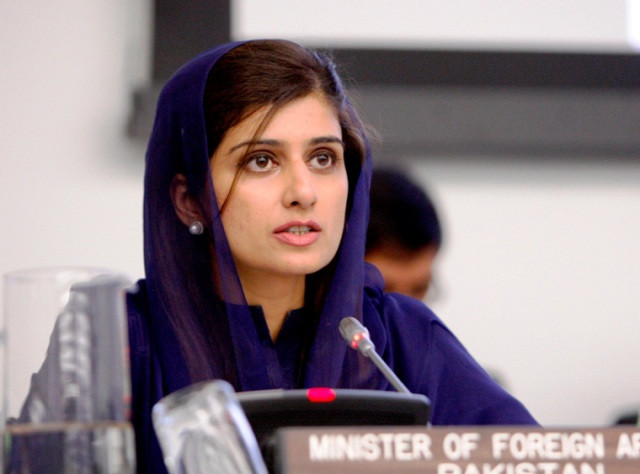Tehran conference: Khar opposes coercive measures in Syria
Delegates from 28 countries gather in the Iranian capital.

Tehran conference: Khar opposes coercive measures in Syria
With violence engulfing major cities in Syria, including Damascus and Aleppo, Pakistan has voiced its opposition to any “coercive” measures in Syria which could worsen an already volatile situation in the troubled country.
Foreign Minister Hina Rabbani Khar made these remarks at a hurriedly called ministerial level consultative meeting on Syria which opened in the Iranian capital on Thursday. The meeting, held a few days before an extraordinary summit of the Organisation of Islamic Cooperation (OIC) called by Saudi Arabia on Syria, demonstrates the strained relations between the two Middle East powers.
Attended by delegates from 28 countries, the conference is seen as Iran’s attempt to garner support against regime change in Syria. The conference is seeking to find a sustainable solution to the burgeoning humanitarian crisis after the United Nations failed to rein in the warring parties.
In her opening statement, Foreign Minister Khar reiterated the need to find mutually agreeable political solution to the impending crisis saying that prolonged instability in Syria would have serious consequences for the Muslim Ummah.
Khar explained why Pakistan abstained from voting for the UN resolution on Syria last month, saying that Pakistan opposed any outside intervention which could worsen an already complex situation.
Highlighting Pakistan’s belief in the principles of territorial integrity and respect for national sovereignty of member states, the foreign minister said that “we also need to be mindful that the way we deal with any particular crisis becomes a precedent to be emulated in future.”
Hosting Iranian Foreign Minister Minister Ali Akbar Salehi reiterated that Tehran firmly believes that the Syrian crisis can only be resolved through serious and inclusive talks between the government and opposition groups that enjoy popular support in Syria.
International attempts to negotiate a peace deal broke down after UN special envoy for Syria, Kofi Annan, resigned from his post, citing finger pointing and lack of sincerity in working towards a peaceful resolution.
The deepening crisis, which has resulted in approximately 17,000 deaths so far, is threatening to hurl the country in to civil war as opposition to Bashar Assad’s regime gains force. (With additional input from AFP)
Published in The Express Tribune, August 10th, 2012.



















COMMENTS
Comments are moderated and generally will be posted if they are on-topic and not abusive.
For more information, please see our Comments FAQ